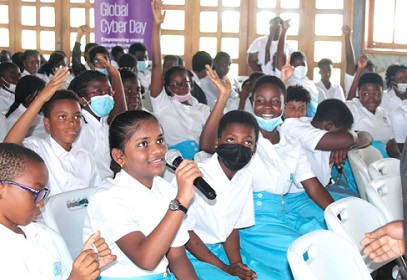Auditing and consulting firm, KPMG Ghana, has commemorated this year’s Global Cyber Day with a sensitisation workshop for students of the East Airport International School in Accra.
The event — which formed part of KPMG Ghana’s commitment to invest in the next generation — aims at educating young people about the importance of cyber security and internet risk.
It was also to empower young people and to enhance their awareness about dangers on the internet, and to encourage practices that would minimise their susceptibility to online attacks
The sensitisation was the latest in a series of engagements undertaken by the firm during the month of October.
KPMG cyber security professionals trained students, teachers and parents on safe use of personal data, social media, cyber bullying, and online gaming, among others.
Cyber security
Partner and Head of Advisory, KPMG Ghana, Andrew Akoto, underscored the need to include cyber security in the curriculum for basic schools.
That, he said, would help to boost the awareness of pupils on cyber threats and to enhance their security online since they were the most vulnerable.
“It is important that while we focus on the opportunities that the internet presents, we also ensure that we include cyber security and awareness as part of the curriculum so that children will know very early that anything else, there could be a good or bad side.
“Unscrupulous persons online gain the attention of children with very exciting stuff. They pretend to be their best friends, give them a whole lot of juicy offers and thereby grab their attention, and only God knows what they would be hooked onto if they do not know some of these attacks,” he added.
Threats
The Manager, Information Technology Advisory Team, KPMG, Fabiola Amedo, said many children were exposed to a lot threats online, including online grooming and cyber bullying, which she said had dire effects on their psychology.
“The key thing that we always encourage the children to do is to be a friend and not a bully. We also tell them not to click on phishing links, always review messages received, and engage adults before they take any action,” she said.
Source: Graphic Online





